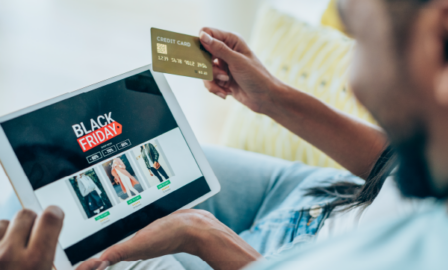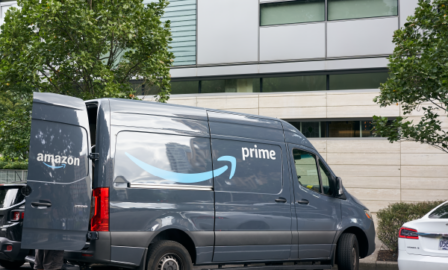Building Your eCommerce Strategy: 3 Lessons Learned from Major eCommerce Events in 2023
With consumers spending a record $9.8 billion in U.S. online sales during Black Friday in 2023, major eCommerce events like these are more important than ever for organizations looking to make the most of their eCommerce strategies. What can be learned from the big eCommerce events of 2023 as we progress into 2024? Below, we break down key takeaways for building your eCommerce strategy based on lessons learned from the major eCommerce events of 2023.
Building Your eCommerce Strategy: Lessons Learned from 2023
1. Increase Deal Opportunities
Throughout 2023, eCommerce brands offered more deals and enticed consumers with savings by increasing flash sale opportunities and expanding holiday shopping season. For instance, Amazon’s Lightning Deals offered time-limited discounts that instilled a sense of urgency among shoppers, compelling them to seize the opportunity for immediate savings. Similarly, Best Buy’s strategic use of flash sales throughout the year, including during Black Friday, incentivized consumers to make timely purchases before the limited supply ran out or the sale ended.
Facing tightened spending budgets in 2023, consumers began holiday shopping earlier in 2023 and spread their spending over the holiday season in search of the best possible deal. Aligning to evolving consumer preferences, eCommerce brands like Walmart continued to begin their Black Friday deals earlier and earlier, with Walmart’s Holiday Kick-off Deal event in mid-October and early Black Friday deals starting more than two before Black Friday on November 8th. Holiday shopping also lasted for longer as smaller discounts were offered beyond Cyber Week.
As you start working through how your organization will tackle big eCommerce events this season, don’t just stick to the major holidays. Consider how you can use flash deals early and often to test and gather data from your consumers.
2. Incorporate a Mobile Strategy and Utilize Push Notifications
In 2023, mobile eCommerce outpaced desktop shopping, indicating consumers’ preference to shop on the go. Purchases made from smartphones accounted for an estimated 51.8% of all online sales on Cyber Monday. This shift in consumer behavior toward a mobile-centric shopping experience results from an increase in average time spent using mobile devices. eCommerce brands leveraged mobile features, like push notifications, to encourage customers to order. “Abandoned cart” push notifications also serve as a proactive method to convert mobile browsing into mobile purchases, especially amidst the busy holiday season when consumers may be more likely to forget to finalize their order.
In preparation for 2023 holiday season, Best Buy introduced a new mobile-first experience, “Best Buy Drops.” These “drops” are exclusive to the Best Buy mobile app and include access to special product releases and savings. Within the app, customers could view the upcoming drops, and, if opted in to the Drop Alerts, they received a push notification when their Drop selections were about to go live.
With mobile eCommerce experiences seeing steady growth, your brand should consider how they can use this device that’s always within a few feet of us to elevate consumer experiences.
3. Focus on Consumer Personalization
Personalization continues to be an important factor in influencing consumer purchasing decisions. Complementary product recommendations, AI recommendations based on previous purchases, and targeted discounts are all effective strategies to tailor content to the shopper. Take, for example, Amazon’s Prime Day, where Amazon Prime Members could subscribe in advance to receive personalization notifications if a Prime Day deal became available for a product they were interested in. AI algorithms analyze past purchase history, browsing behavior, and demographic information to generate personalized product recommendations, guiding shoppers to relevant items they are likely to purchase. Sephora also took personalization to the next level this year during Black Friday, offering deals and targeted promotions based on customers’ purchase history, skincare preferences, and beauty profile.
With personalization no longer being just a nice-to-have, eCommerce brands should consider what role it could play in their strategy going forward and begin planning sooner rather than later. We know a good personalization strategy takes time, but when done well, it can mean large returns.
Next Steps
For organizations looking to make the most out of the major eCommerce events of 2024, it’s never too early to start preparing and putting key strategies that were successful into action. If you’re looking to build a more complex eCommerce strategy, Clarkston can help. Our comprehensive eCommerce strategy experience can help you take your plan to the next level. Interested in learning more? Let’s chat!
Subscribe to Clarkston's Insights
Contributions by Sydney Daniels



